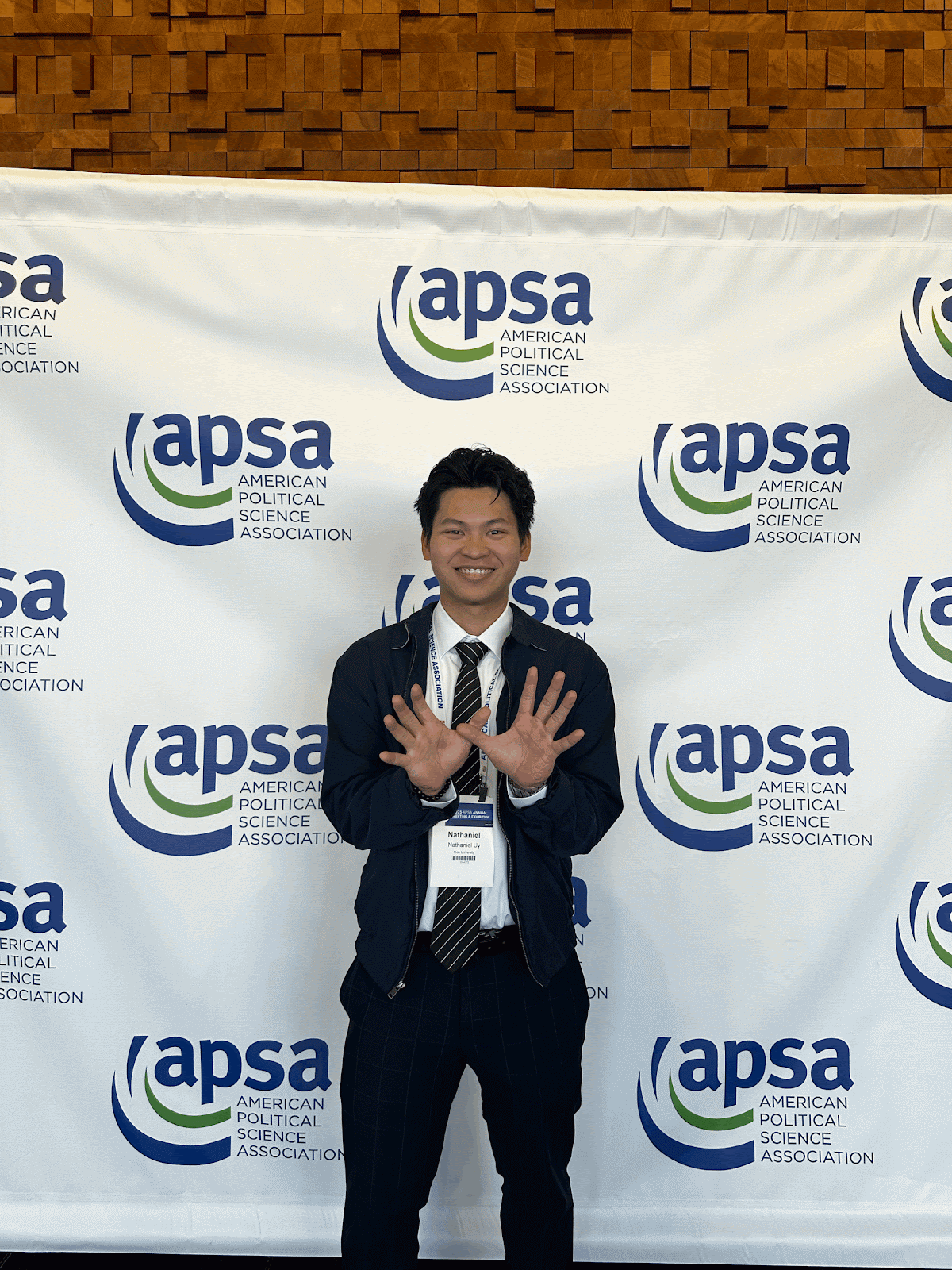I write blogs like this every once in a while to reconnect with myself and my goals. I arrived in the United States about a year ago, and since then, I have been focused and disciplined. I need to be. I have no choice. This is the path. I also want to showcase how much Rice allows me to grow and gives me a platform to inspire others. I am very lucky to be a Rice Owl, and this is my home.
The Conference Experience
I attended the American Political Science Association (APSA) Annual Meeting in Vancouver from September 10 to 14. This meeting brings together scholars in political science to discuss research trends and ongoing projects. Participants can present their work in various panels where co-panelists and experts from different universities offer critiques and suggestions for improvement. APSA also hosts research group meetings focused on specific subfields or regions of interest, providing opportunities for deeper engagement with specialized communities. Another unique feature was the “Author Meets Critics” sessions, where newly published books are reviewed and discussed by a panel of experts, fostering thoughtful debate and fresh perspectives. In addition, APSA offered receptions and networking events designed to help attendees connect with fellow scholars and build professional relationships.
I am applying for my PhD in Political Science this application cycle, and I want this process to be strategic and systematic. After all, this decision will shape what my future looks like. Attending APSA felt like the best place to be at this stage. It was a hub of knowledge where I could ask anything I wanted, a place where everyone understood the value of area studies and political science. My goal was to learn from the discourse, to experience what it feels like to be a presenter or a PhD student in this field. I wanted to meet professors and students and ask them about their journeys, struggles, and accomplishments.
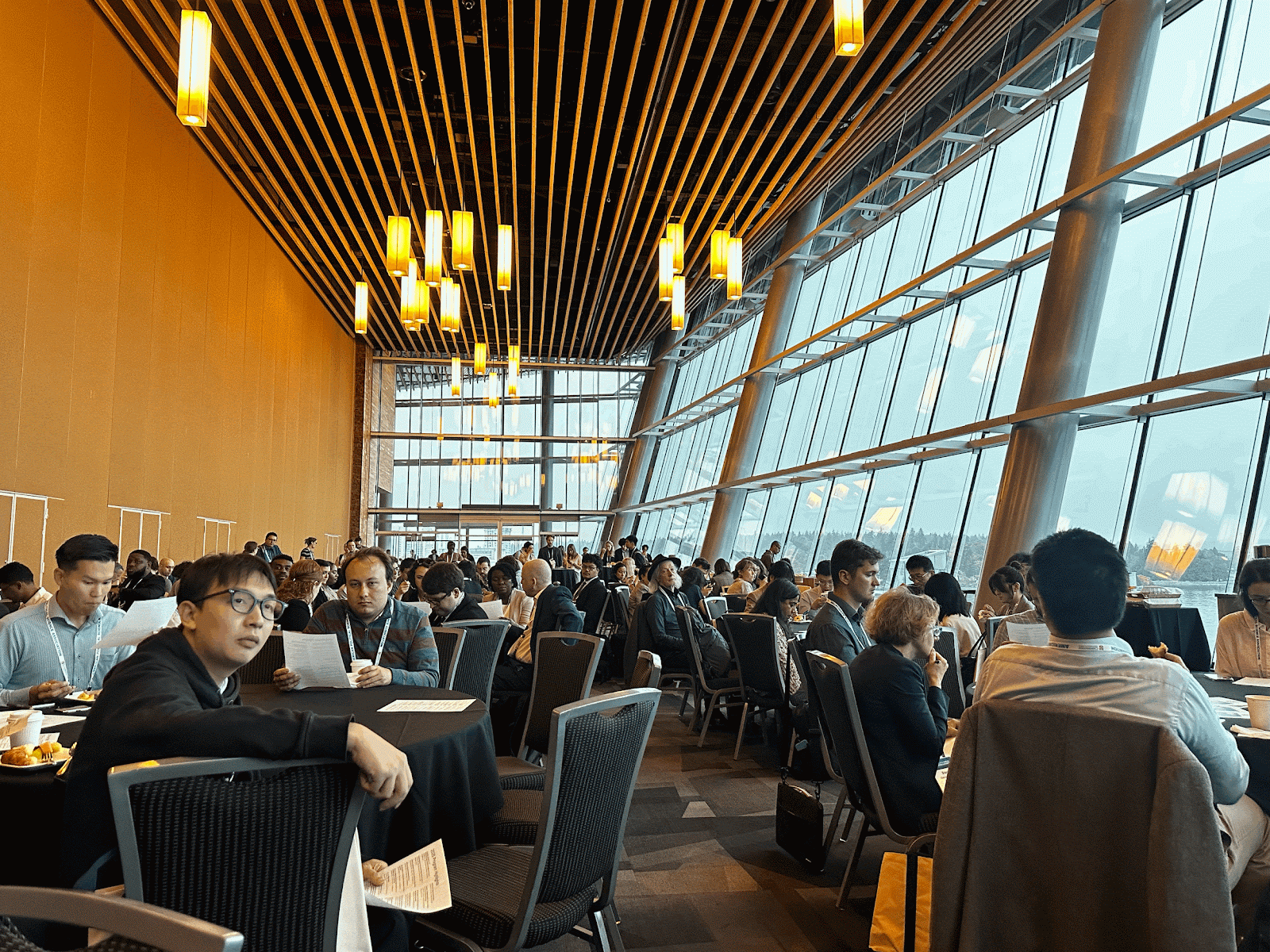
Most participants were PhD students and professors, so as a master’s student, I was worried that I might feel out of place or struggle to follow the discussions. I was also overwhelmed by the number of panels, roughly 500 each day in multiple locations.
First Steps in Vancouver
I landed on the 10th and immediately went to the Southeast Asia Research Group (SEARG) meeting. As soon as I dropped my bag off at the hotel, I went straight there in my sneakers and sweater without even picking up my badge first.
Small efforts like that mean a lot in this field. Of course, I had thoughts like, “Maybe I should relax first since I just arrived,” or “I do not know anyone there, maybe I should not go.” I was tired and hungry, but I pushed through, and it was worth it.
I met professors focused on Southeast Asia, such as Risa Toha of Wake Forest University and Kai Ostwald of UBC. Coming to the United States, I often felt that Southeast Asia was overshadowed by regions with more visible conflicts, such as the Middle East or Russia. Seeing many scholars focused on this region inspired me deeply. They invited me to attend other Southeast Asian panels and receptions, and so I did. There I met Oren Samet, who will be joining Rice University as an assistant professor in 2026; Professor Meredith Weiss, a Rice alumnus now at the University at Albany; and Professor Amy Liu, the interim chair of UT Austin’s Department of Political Science.
Learning with Purpose
I attended as many panels as I could, as early as possible, even if it meant waking up at 6 a.m. and returning to the hotel at 9 p.m. My goal in Vancouver was not to have a vacation but to learn more about political science, graduate programs, and to meet scholars and experts. I will have the chance to tour Vancouver again in the future, but not right now. In my mind, I could meet someone that morning who might change my life, career, or future. I can catch up on sleep when I return to Houston.
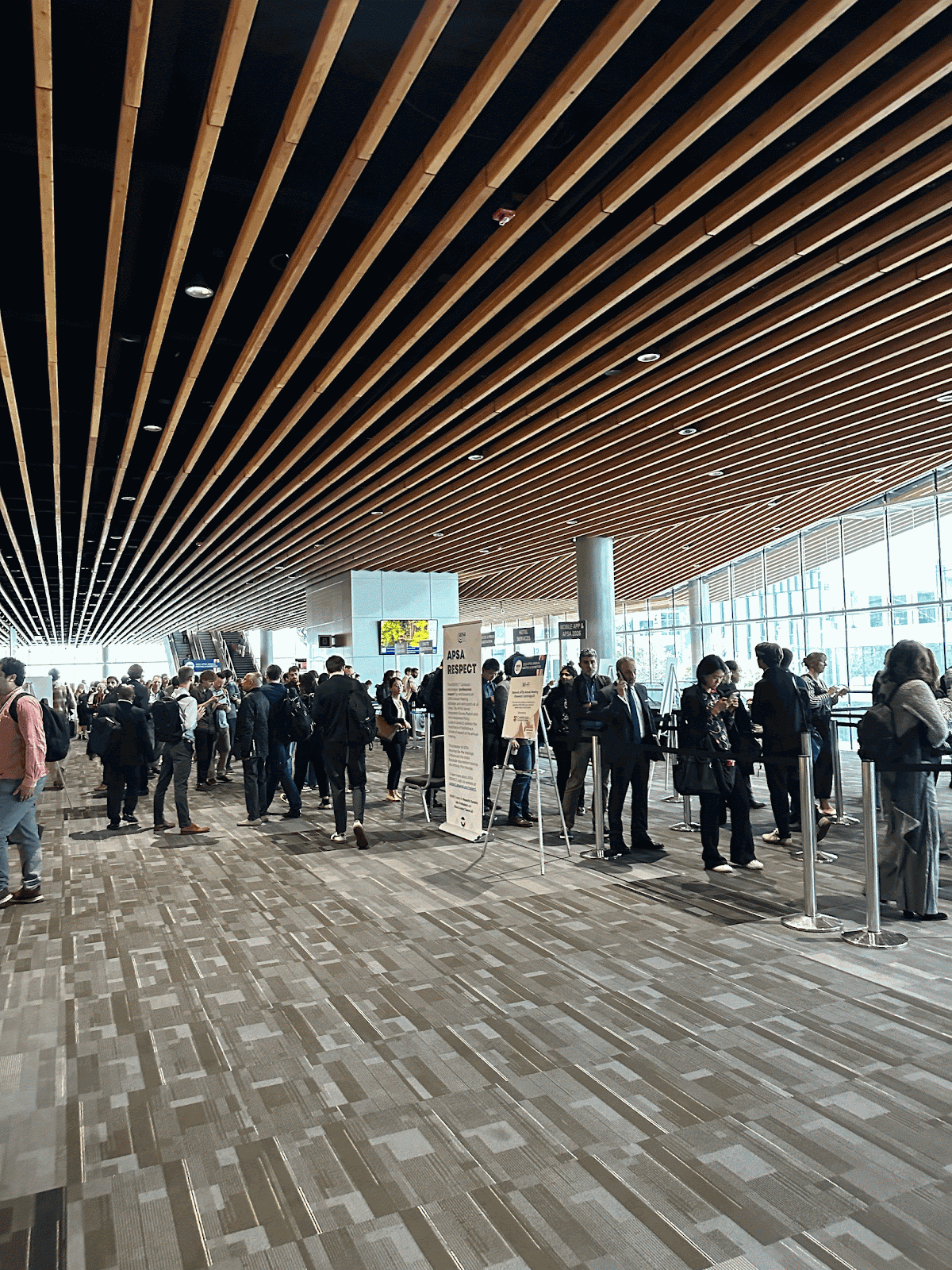
Attending the conference was life-changing. I was able to connect with scholars at different stages of their careers, including tenured professors, those about to enter the job market, and postdoctoral researchers.
Connections and Mentors
There were also many Rice faculty and students there, including Professors Ashley Leeds, Guillermo Rosas, and Jae Hee Jung, who made me feel more comfortable. I was even lucky enough to attend the Rice Reception, where alumni and current students reconnected.
Along the way, I also made new friends: two Filipino scholars, Patrick Peralta from the University of Michigan and Phebe Ferrer from the University of British Columbia. It was heartwarming to see Filipinos in this field. I also met Professors Cesi Cruz from the University of Michigan and Erik Martinez Kuhonta from McGill University.
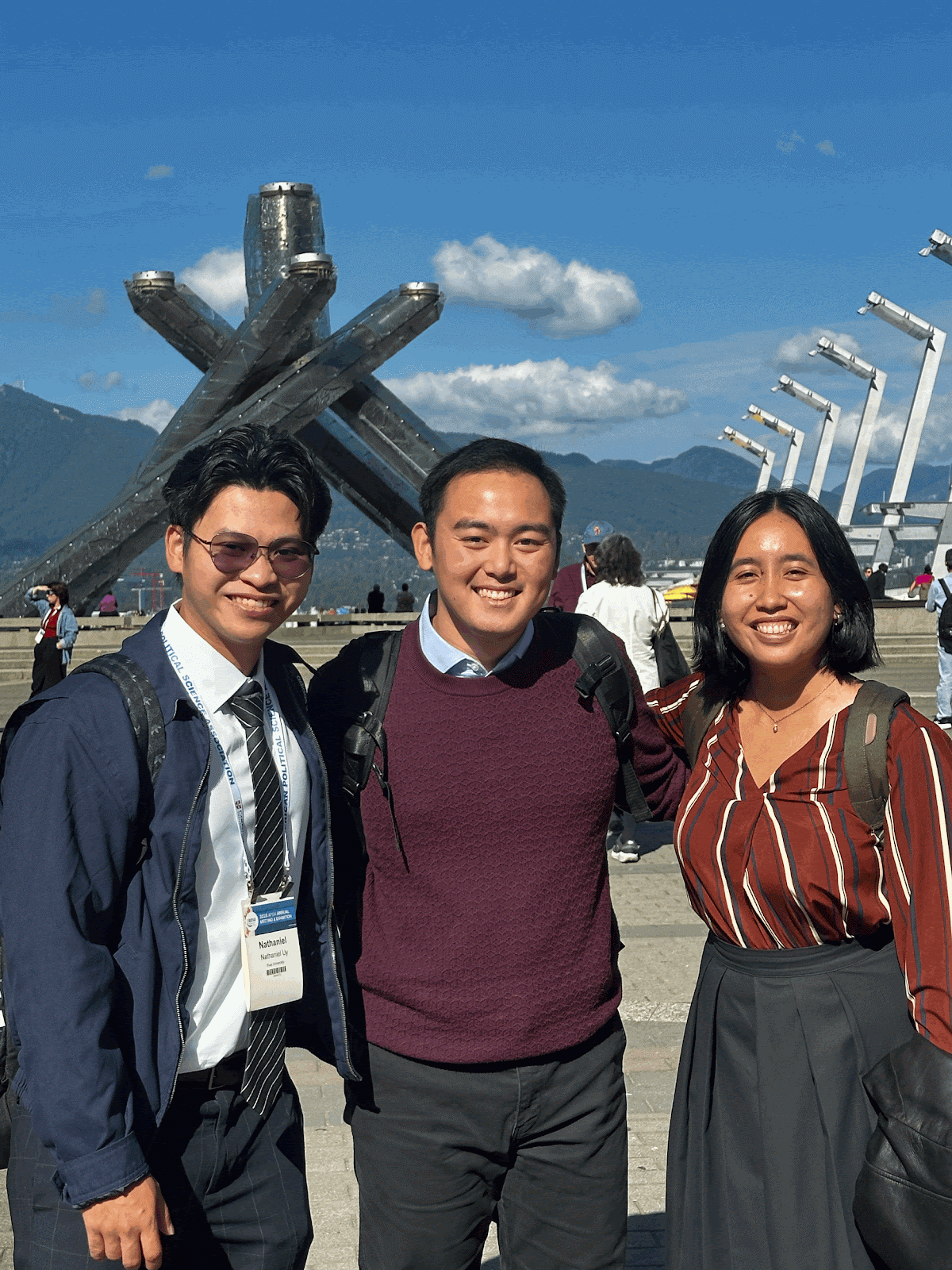
Meeting Thomas Pepinsky, a renowned Southeast Asia scholar from Cornell University, was a highlight. During our brief conversation, I asked him everything I wanted to know about becoming an expert in the field. That moment reaffirmed that this is the world I want to be in and one where I can thrive.
I also reconnected with my friend Dana Haltam from the University of Tennessee, Knoxville, whom I met last year in a Rice statistical workshop. I was fortunate to meet Professor Jason Casellas, interim chair of the University of Houston’s political science program, who gave me great advice on navigating this path and choosing the right program.
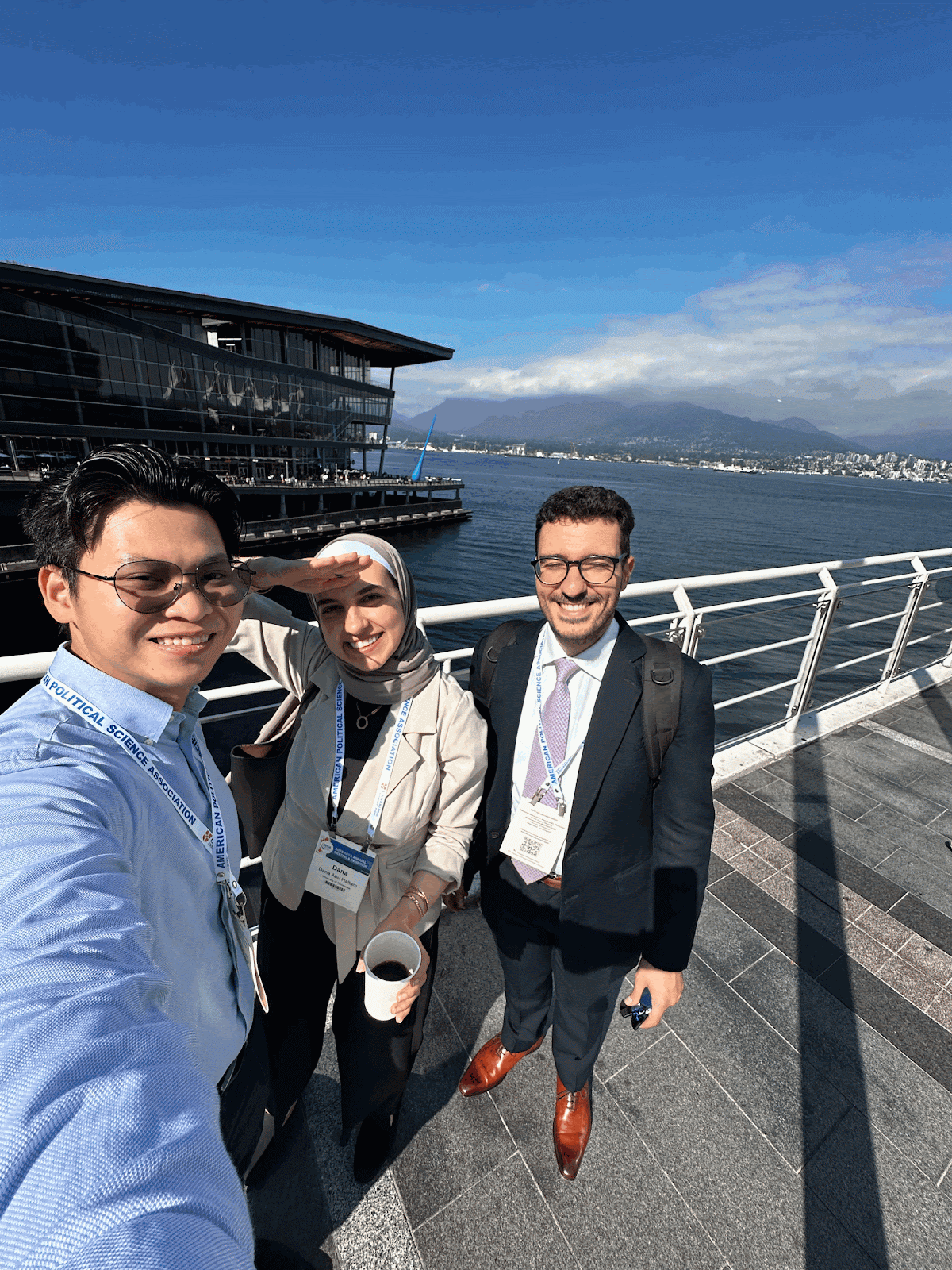
Lessons and Realizations
The main thing I learned from this conference is that nobody expects you to be an expert right away when applying to a PhD program. Nobody expects you to have all the answers. Otherwise, why would you even need a PhD? What matters most is your capacity to learn and your ability to ask the right questions.
A PhD in the United States typically takes at least five years, so you must be committed. You have to love what you are doing and find a mentor who can guide you in a program that fosters growth because it will get challenging. Many scholars told me that much of the admissions process is out of your control. It depends on what the committee is looking for that cycle and on the department’s constraints.
So what can you control? Your personal statement, recommendation letters, writing sample, and GRE score. These are tangible elements you can improve, shape, and perfect.
Gratitude and Moving Forward
Attending APSA would not have been possible without the help of my mentor, Dr. Steven Lewis of the Baker Institute, who introduced me to APSA and guided my strategies and preparation. I am also grateful for the support of the Department of Global Affairs, particularly Assistant Dean Abbey Godley through its Professional Development Fund, and my friend Agustin Prinetti, who is currently a student in the Political Science program at Rice and helped guide me during the conference.
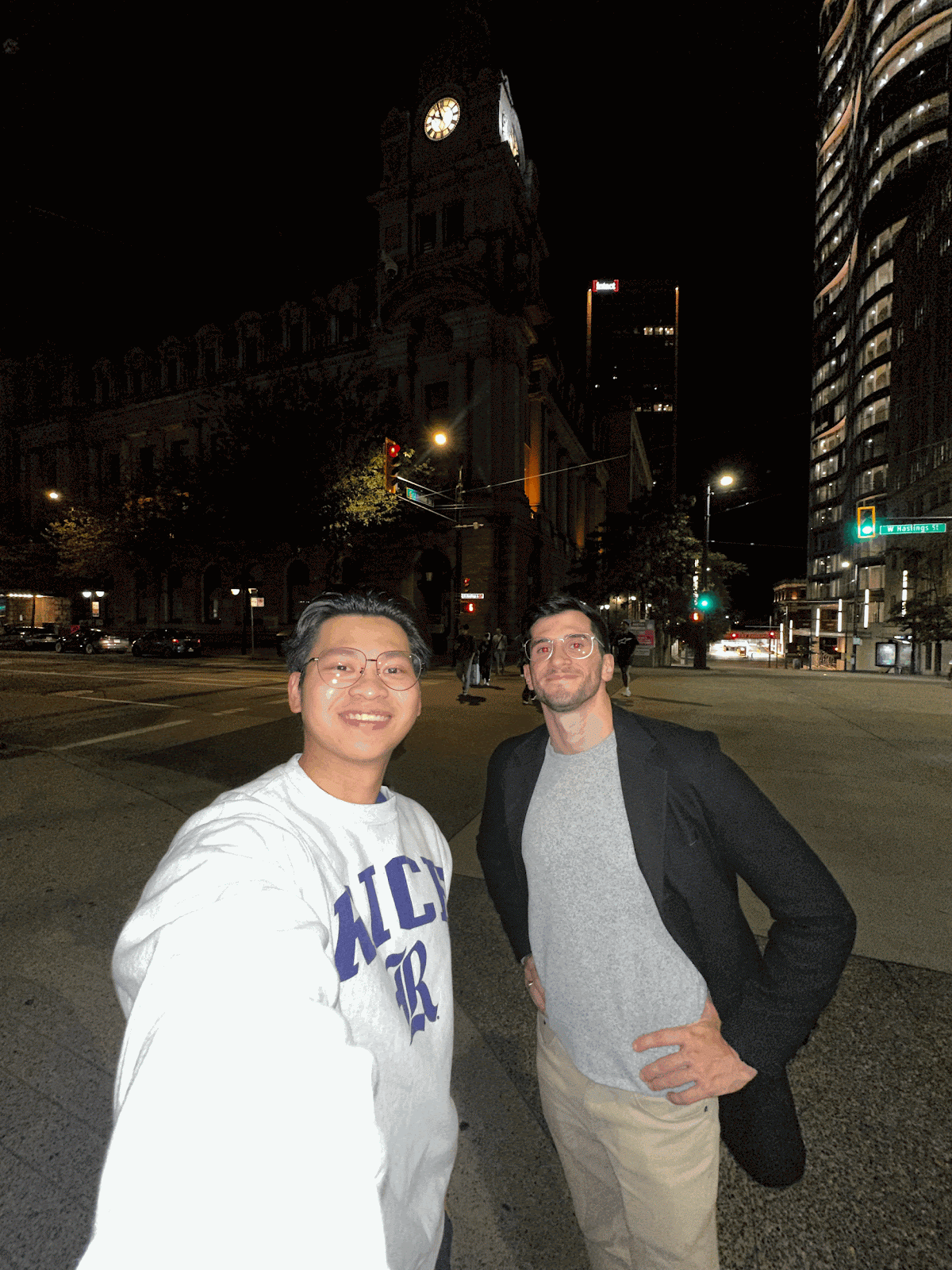
It is inspiring to have such strong support from Rice and to have so many resources to draw upon. Opportunities are everywhere. FIND THEM. SEIZE THEM
Looking Ahead
Building connections is essential when pursuing a PhD. The people I met could become my future colleagues, advisors, or even co-authors. I am falling in love with research and academia. There is so much to learn and so many questions to explore.
I want to understand how the world works. I want to know how institutions and individuals shape their environments. As I write this blog, I still do not know where I will be next year or what program I will join. But I know I am privileged to have this opportunity to explore, to seek out new possibilities, and to connect meaningfully with others along the way.
I think this is the purpose of being human: to continuously grow, learn, and connect with others in this short lifetime.
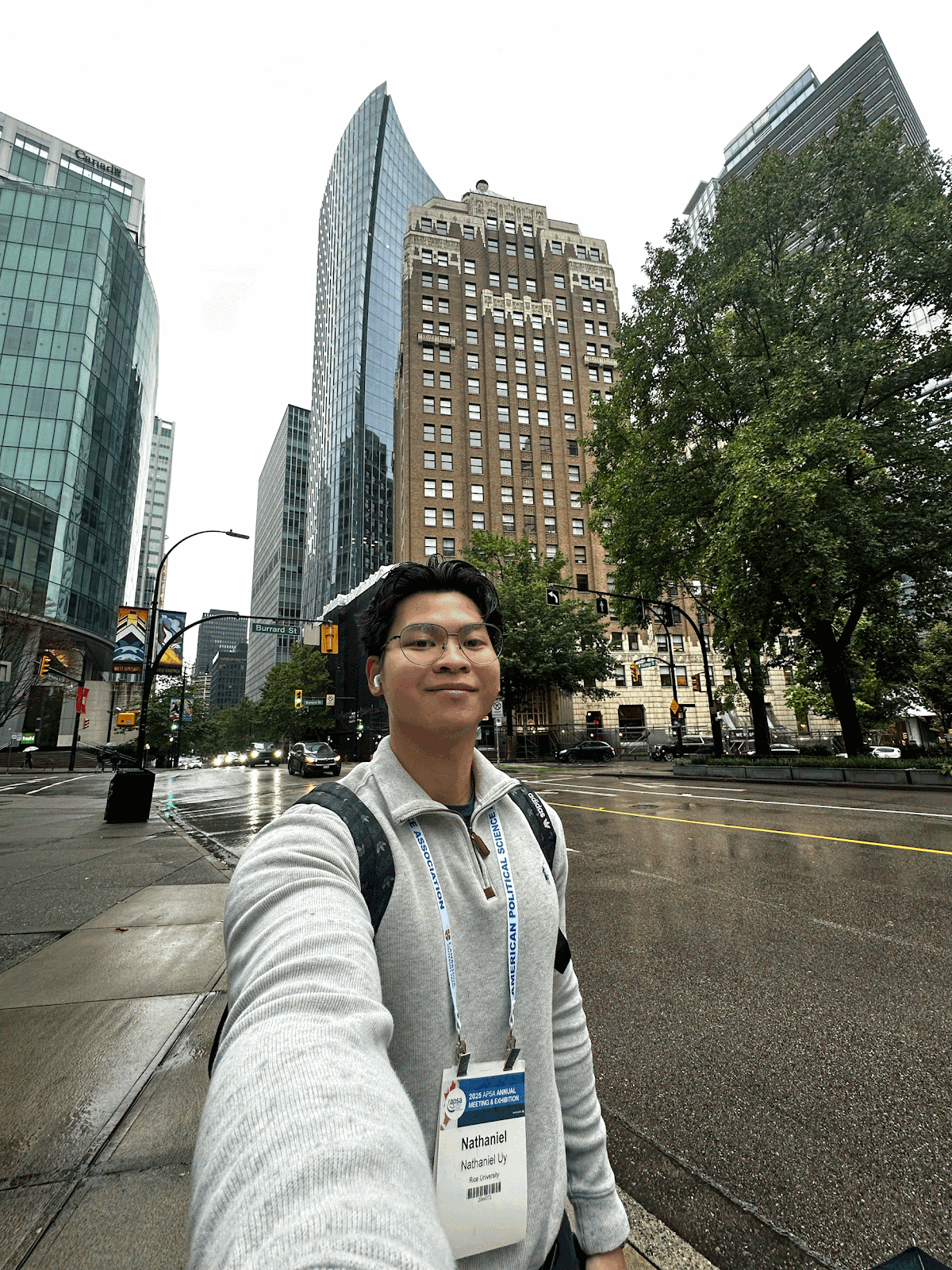
About the author:
Nathaniel Uy is from the Philippines and is currently pursuing a master's degree in Global Affairs at Rice University. He earned his B.A. in Social Sciences (Area Studies) from the University of the Philippines Manila in 2022, graduating Cum Laude. Nathaniel is an intern at the Baker Institute for Public Policy and the founder and president of the Rice Filipino Graduate Student Association. He is actively working to strengthen the connection between Rice University and the Filipino community, aiming to increase Filipino representation at Rice.Read More
Further Reading:
Advice from a 6th-Year Ph.D. Student
PhD Retrospective: Each semester, one objective. Year one
Grad School Isn’t Just School: Finding Life Outside the Lab at Rice

